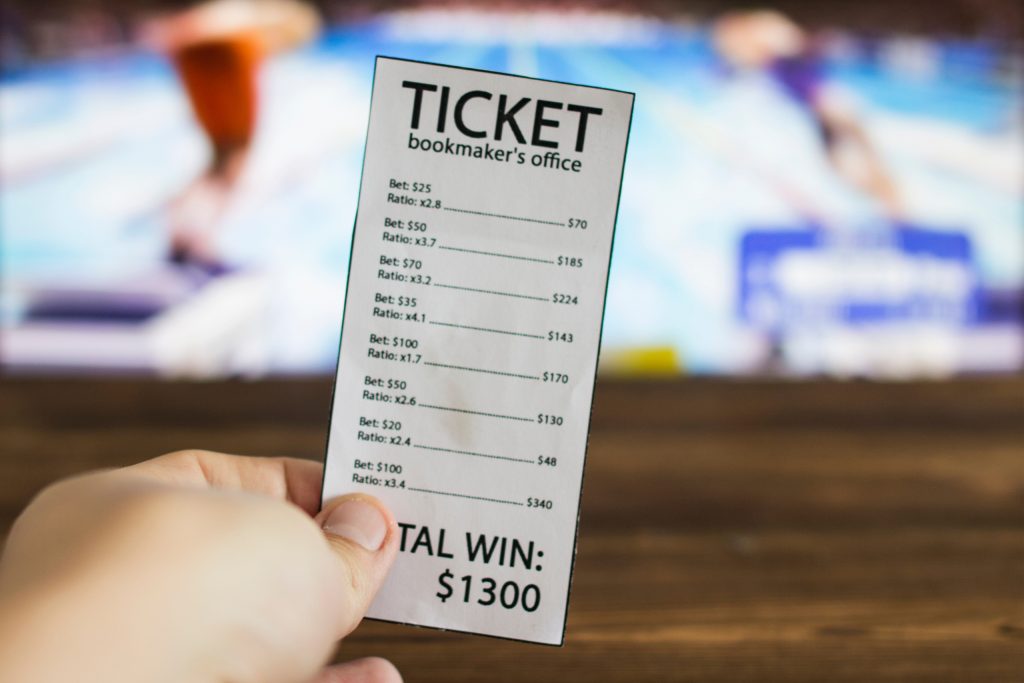Sports betting is a thrilling activity that millions of people around the world engage in. But have you ever wondered who makes it all possible? That’s where bookmakers come in. These unsung heroes play a crucial role in the world of sports betting, setting the odds and determining the payouts for each wager placed.
While many people may be familiar with the concept of bookmakers, few truly understand the extent of their involvement and how they make their money. It’s time to shed some light on this mysterious profession and gain a deeper understanding of their role in the world of sports betting.
In this article, we will explore the inner workings of bookmakers, their methods of setting odds, and how they manage their risk. By the end, you’ll have a better appreciation for the indispensable role they play in the exciting world of sports betting.
The Basics of Sports Betting
Sports betting involves placing a wager on the outcome of a sporting event, and bookmakers play a crucial role in this process. In the UK, bookmakers are widely available both online and in physical locations, offering a variety of betting options on sports events. In the US, there are legal and regulated brick-and-mortar sportsbooks, as well as online betting platforms in certain states. In Canada, provincial governments operate sports betting through lottery corporations.
The bookmaker’s role is to set the odds or lines for the sports events, aiming to attract balanced betting action on both sides. By doing so, they can minimize the risk of heavy financial losses. Bettors should understand that they are not competing against the bookmakers but instead should use their expertise to make informed betting decisions.
Different locations have different regulations and options for sports betting, and it’s important for bettors to be aware of the laws and available bookmakers or ブックメーカー in their area. Making educated bets and understanding the role of bookmakers is essential for a successful sports betting experience.
Types of Gambling
There are different types of gambling, including online betting, sports betting, and casino gambling. In Australia, online betting and sports betting are regulated by the Australian Communications and Media Authority (ACMA), while casino gambling is regulated by individual state and territory governments. In France, all forms of gambling are regulated by the French gambling regulator, ARJEL (Autorité de régulation des jeux en ligne). The United Kingdom has a comprehensive regulatory framework for all types of gambling, overseen by the UK Gambling Commission.
Regulations and restrictions vary for each type of gambling in these countries. For online betting and sports betting, there are strict age verification and responsible gambling measures in place. Casino gambling is subject to licensing requirements and regulations on the types of games offered. In recent years, there have been developments in the industry, such as the introduction of online gambling licenses and new regulations to address issues such as problem gambling and advertising standards.
Overall, regulations for different types of gambling are in place to ensure consumer protection, prevent gambling-related harm, and maintain the integrity of the industry.
Understanding the Odds
Understanding the odds is an essential aspect of making informed decisions in various aspects of life. Whether it’s in sports betting, investing in the stock market, or making choices in life, having a good grasp of the odds can make a significant difference in the outcomes. By understanding the concept of probability and how it is used to calculate odds, individuals are better equipped to assess risks and make more rational choices.
Moneyline Odds
Bookmakers set moneyline odds based on various factors such as their own outlook on the event, the desired profit margin, likely betting activity, and their competitors’ odds and lines. The bookmakers’ outlook is influenced by factors such as the form, injuries, and overall performance of the teams or individual players involved. They also take into account the potential betting activity on each side to ensure a balanced book and minimize the risk of large payouts.
In order to maintain balance and manage risk, odds compilers may need to make adjustments to their moneyline odds and lines. Changes in their outlook on the event or new information can prompt them to alter the odds to reflect the updated probabilities. Additionally, the weight of money – the amount of bets being placed on a particular outcome – can also influence odds adjustments. If a significant amount of money is being placed on one side, the bookmaker may adjust the odds to attract more bets on the other side and balance their book.
Overall, bookmakers set moneyline odds based on their own assessments and the market environment, and may need to make adjustments to manage risk and attract balanced betting activity.
Point Spreads
Point spreads are a common concept in sports betting, particularly in games where one team is heavily favored over the other. The idea behind point spreads is to level the playing field by handicapping the favorite team and giving the underdog a certain number of points to cover the spread. This creates an opportunity for bettors to wager on either team, with the ultimate goal of balancing the betting action on both sides.
In practical terms, if a football team is a 10-point favorite, they are essentially starting the game with a 10-point deficit in the eyes of sports bettors. On the other hand, the underdog is given a 10-point advantage. This means that in order for a bet on the favorite to win, they must win by more than 10 points, while a bet on the underdog can still win even if they lose the game, as long as they stay within 10 points.
By using point spreads, sportsbooks aim to attract an equal amount of betting action on both sides of the wager, ensuring that they make a profit regardless of the outcome. It adds an extra layer of strategy and excitement to sports betting, allowing bettors to analyze not only the likelihood of a team winning, but also by how much.
Over/Under Bets
In sports betting, Over/Under bets are based on the total points, goals, or other scoring metrics in a game. For example, in basketball, a bettor might wager on whether the total points scored by both teams will be over or under a certain number set by the bookmaker.
Implied odds are the probabilities reflected by the odds offered by bookmakers. The overround, also known as the vigorish or the juice, is the bookmaker’s built-in profit margin in the odds they offer. It is important for bettors to consider the overround when assessing the reasonableness of the odds offered by bookmakers for Over/Under bets. If the overround is too high, it may indicate that the odds are not favorable for the bettor.
Overall, Over/Under bets offer a different approach to sports betting by focusing on the total scoring metrics rather than on the outcome of the game. By understanding implied odds and the overround, bettors can make more informed decisions when placing Over/Under bets.
Parlays and Teasers
Parlays and teasers are popular types of sports bets that offer different potential payouts and risks. A parlay involves combining multiple individual bets into one, with the potential for a higher payout. The risk with parlays is that if any of the individual bets lose, the entire parlay is lost. On the other hand, a teaser allows the bettor to adjust the point spread or totals line in their favor, but it also decreases the potential payout. The advantage of a teaser is that it can increase the chances of winning the bet, but the trade-off is a lower potential payout.
It may be advantageous to use a parlay when there are several strong favorites in various games, as it can result in a larger payout. Meanwhile, a teaser might be beneficial when the bettor wants to increase their chances of winning by adjusting the point spread or totals line in their favor.
Futures Bets
Futures bets in sports betting involve wagering on the outcome of an event that will occur in the future, such as the winner of a league or championship. This type of bet is different from traditional bets on individual games because it involves predicting a long-term outcome rather than the immediate result of a single match.
Some popular types of futures bets include wagering on the winner of a league or championship, the Most Valuable Player of a sports season, or the total number of wins a team will achieve in a season.
The potential rewards of futures bets can be significant, as they often offer higher payouts compared to traditional bets due to the longer timeframe involved. However, the risks are also greater, as the outcome of the event is uncertain and can take a significant amount of time to be determined. This type of wagering requires careful consideration and research, as the odds can change over time based on factors such as player injuries, team performance, and other developments.
Overall, futures bets in sports betting offer a unique way for bettors to engage with their favorite sports and potentially win big, but they also come with increased risks and require a long-term perspective.

Conclusion
In conclusion, bookmakers play a vital role in the sports betting industry. They provide necessary services and resources that enable bettors to make informed decisions when it comes to placing wagers on sporting events. Bookmakers also set the odds for each event, which allows bettors to compare various lines so they can find the best value for their bets. Furthermore, bookmakers provide bettors with other important information such as the latest news and analysis on upcoming events. Ultimately, bookmakers provide an invaluable service to sports bettors all over the world.

